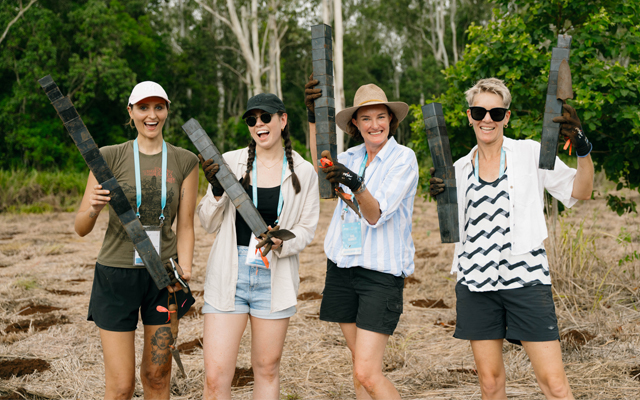
Tourism Tropical North Queensland (TTNQ) has published its first annual Sustainability Report that charts the work undertaken to guide the industry towards reducing carbon emissions and contributing to the local environment and community.
TTNQ chief executive officer Mark Olsen said the industry had taken many steps forward in recent years after establishing the brand promise in 2020 that visitors would: See Great, Leave Greater.

“Global expectations are rising for the tourism industry to move beyond providing experiences to ensuring that tourism is sustainable and contributing to the future of our natural environments and our communities,” Olsen said.
According to the report, Tropical North Queensland has the greatest number of eco-accredited businesses in any region in Australia and one of the highest in the world. There are 84 operators and 191 experiences with Ecotourism or EarthCheck accreditation, which accounts for 21 per cent of TTNQ’s total membership.
He said: “The region is on track to reach its net zero aspiration in 2050 by aiming to reduce the average carbon emissions per visitor from 55kg per day to 42kg in 2032 through the adoption of sustainable aviation fuel, emissions reductions by businesses through solar, reducing waste to landfill and transitioning to renewables.
“At least 20 per cent of TTNQ members are measuring and offsetting their impacts through local conservation programmes such as Reforest’s Mabi forest rehabilitation for the endangered tree kangaroo on the Atherton Tablelands.”
There is manpower commitment to TTNQ’s sustainability journey. It appointed a part-time sustainability coordinator in September 2023 to support members and established a Sustainability Leaders Cluster Group which has increased from 71 to 113 members in the past year.
Beyond environmental achievements, the number of Indigenous experiences in the Australian Tourism Data Warehouse has also almost tripled from 12 to 32 on the back of the Tropical North Queensland First Nations Tourism Plan, which was launched in May 2023.
Olsen shared that media and marketing activities are deployed to help the public to understand challenges and show how they can be more involved in making a difference in the destination.
“Initiatives like the Guardian of the Reef programme add value by rewarding consumers for learning about the Reef and its challenges,” he said. This programme earned A$7 million (US$4.5 million) in accredited product sales last year with 55,000 people using the platform to drive 18,000 bookings. It also generated more than 60 global media articles worth A$20 million that reached 200 million people around the world.
He acknowledged that “the sustainability journey is a long one”, but TTNQ and members are committed to promote their destination “with the promise that every visitor will not only see great, but they will also leave greater knowing they have contributed to the protection and management of World Heritage areas.”

















